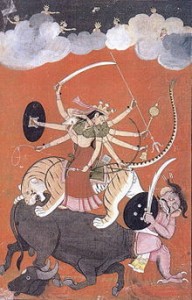
I read Child of the Dark: The Diary of Carolina Maria de Jesus and Rubyfruit Jungle around the same time and in each case, the narrator stayed with me for years, was like a friend I’d met at summer camp or some other event, never seen again but well-remembered all the same.
Later I’d come to her poetry at a time when my ears were ready to drink it in. Her voice was sharp and observant, outspoken and nuanced all at once. Here’s one of my favorites among her poems, “I Rise.”
You may write me down in history
With your bitter, twisted lies,
You may tread me in the very dirt
But still, like dust, I’ll rise.Does my sassiness upset you?
Why are you beset with gloom?
‘Cause I walk like I’ve got oil wells
Pumping in my living room.Just like moons and like suns,
With the certainty of tides,
Just like hopes springing high,
Still I’ll rise.Did you want to see me broken?
Bowed head and lowered eyes?
Shoulders falling down like teardrops.
Weakened by my soulful cries.Does my haughtiness offend you?
Don’t you take it awful hard
‘Cause I laugh like I’ve got gold mines
Diggin’ in my own back yard.You may shoot me with your words,
You may cut me with your eyes,
You may kill me with your hatefulness,
But still, like air, I’ll rise.Does my sexiness upset you?
Does it come as a surprise
That I dance like I’ve got diamonds
At the meeting of my thighs?Out of the huts of history’s shame
I rise
Up from a past that’s rooted in pain
I rise
I’m a black ocean, leaping and wide,
Welling and swelling I bear in the tide.
Leaving behind nights of terror and fear
I rise
Into a daybreak that’s wondrously clear
I rise
Bringing the gifts that my ancestors gave,
I am the dream and the hope of the slave.
I rise
I rise
I rise.
Learning of her death this morning was a blow. She was bold and wonderful and eloquent, all that a poet should be. She spoke about our times and testified to her experience so others could learn from it. I have a special family in her heart, made up of the writers that have shaped me. Chaucer’s there, and Joanna Russ, and so many others. I wish I’d had the chance to meet her in person.
Here’s a recent quote from her I came across this morning and love: The ache for home lives in all of us, the safe place where we can go as we are and not be questioned.
I’m glad you’re home, Maya. But oh, those of us still aching for it will miss you.








